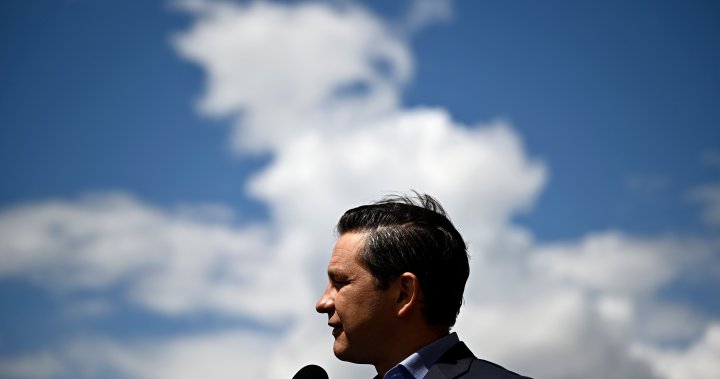Ambassadors in Ottawa are seeking answers to decode the foreign policy of the Conservative Party as its leader, Pierre Poilievre, provides little insight into his approach as a potential prime minister. Diplomats from various embassies express uncertainty about whether the Conservatives would uphold global climate commitments and continue their strong support for Ukraine. Due to the risk of compromising diplomatic relations, these diplomats choose to speak anonymously. Garry Keller, Vice President of lobbying firm StrategyCorp and former Chief of Staff to former Conservative Foreign Minister John Baird, explains that it is common for embassies to reach out to party leaders of all affiliations. He also notes that opposition leaders are typically more difficult to contact until an election is imminent.
Keller further indicates that foreign-policy matters do not tend to significantly impact Canadian voters’ choices, as they prioritize issues like housing and healthcare. However, Chris Alexander, former Immigration Minister under former Conservative Prime Minister Stephen Harper, argues that Poilievre should provide more transparency, given the global impact of issues such as conflicts and climate change.
Since becoming leader almost a year ago, Poilievre has targeted certain foreign-policy aspects towards diaspora communities in Canada. For example, he has promised to establish a direct flight from Canada to Amritsar, a city central to the Sikh faith in India. Additionally, he differentiates himself from the Liberal government by pledging to take a tougher stance against certain foreign actors, such as designating Iran’s Islamic Revolutionary Guard Corps as a terror group. This move has been welcomed by Iranian-Canadian groups. Poilievre has also proposed legislative updates to strengthen Canadian sanctions laws.
However, Poilievre delegates some of the most critical foreign-policy topics to key members of his front bench. Conservative Foreign Affairs Critic Michael Chong criticizes the Liberals’ response to interference by adversaries and calls for expelling diplomats from countries like China and Russia for alleged interference in democratic processes and diaspora communities. Conservative foreign-aid critic Garnett Genuis leads efforts to eradicate slave labor from supply chains and addresses allegations of Uyghur mistreatment in China.
Deputy Leader Melissa Lantsman hints at wider Conservative priorities, emphasizing a foreign policy based on democracy, freedom, human rights, and the rule of law, as well as Canada’s own security. She suggests prioritizing oil and gas exports to help countries decrease their reliance on more polluting fuels that benefit dictatorships.
Furthermore, Lantsman proposes that Canada reduce its membership in international groups while increasing involvement in select few. Additionally, she recommends focusing on meeting NATO’s target of spending two percent of GDP on defense by bolstering assets in the Arctic.
The Conservatives have also managed to pass a bill in the House of Commons that enables the CRTC to more easily ban television channels from sanctioned countries. If approved by the Senate, the bill would require regular reports on certain prisoners of conscience abroad and extend the application of sanctions to more human rights violators.
Garry Keller states that these policy elements align with the vision of former leader Erin O’Toole, who aimed to replace virtue-signaling with a concrete international agenda that takes a firmer stance against dictatorships at the United Nations. O’Toole’s platform also includes plans to enhance trade with Africa and improve Arctic collaboration with the United States.
Keller mentions that O’Toole’s foreign policy was heavily influenced by Shuvaloy Majumdar, a former foreign-policy advisor during the Harper era, who was recently elected as an MP for Calgary. He believes that Majumdar and Stephanie Kusie, another Calgary MP who worked as a Canadian diplomat in Latin America and Texas, will shape Poilievre’s approach.
According to Poilievre’s office, he aims to restore Canada’s reputation through common sense and critiques Prime Minister Justin Trudeau for weakening Canada’s global standing. The lack of a clear commitment to existing climate agreements worries European allies, despite the Liberal government’s failure to meet its own targets. Diplomats also express concerns about whether a Conservative government would continue unwavering support for Ukraine, considering signs of waning Republican support in the U.S.
Diplomats specifically mention Poilievre’s silence on Canada’s existing climate commitments and his limited dialogue on the Ukraine invasion, causing apprehension among European allies. Alexander highlights the need for a comprehensive Indo-Pacific strategy and a narrative surrounding Canadian energy and climate policies. He argues that the Liberal government’s actions create numerous opportunities for the Conservatives to demonstrate expertise in foreign-policy matters if Poilievre seizes the moment.
Denial of responsibility! VigourTimes is an automatic aggregator of Global media. In each content, the hyperlink to the primary source is specified. All trademarks belong to their rightful owners, and all materials to their authors. For any complaint, please reach us at – [email protected]. We will take necessary action within 24 hours.


